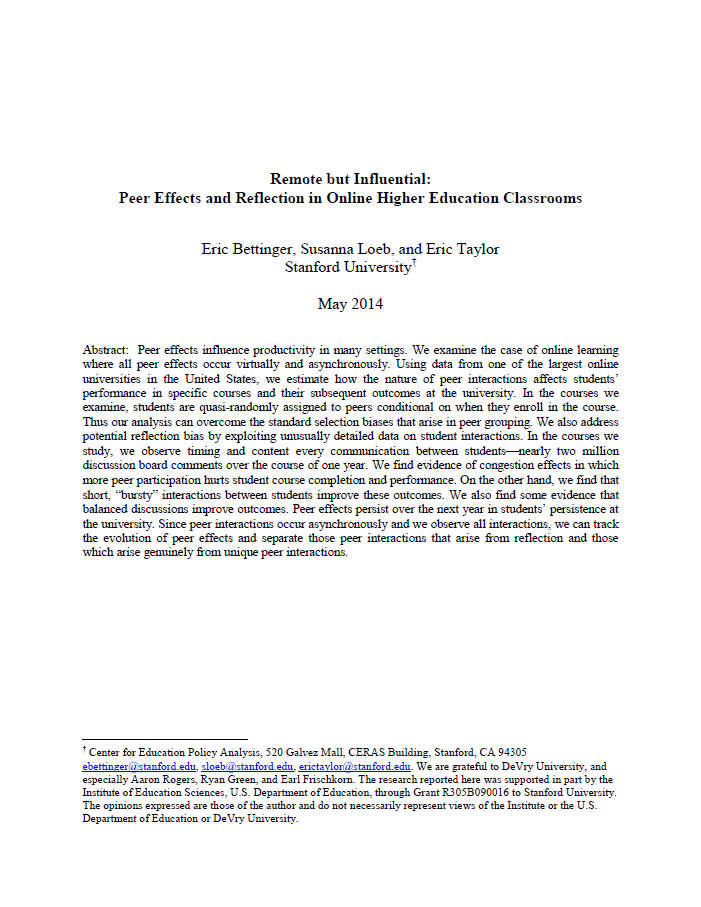Remote but Influential : Peer Effects and Reflection in Online Higher Education Classrooms
Abstract
eer effects influence productivity in many settings. We examine the case of online learning where all peer effects occur virtually and asynchronously. Using data from one of the largest online universities in the United States, we estimate how the nature of peer interactions affects students’ performance in specific courses and their subsequent outcomes at the university. In the courses we examine, students are quasi-randomly assigned to peers conditional on when they enroll in the course. Thus our analysis can overcome the standard selection biases that arise in peer grouping. We also address potential reflection bias by exploiting unusually detailed data on student interactions. In the courses we study, we observe timing and content every communication between students—nearly two million discussion board comments over the course of one year. We find evidence of congestion effects in which more peer participation hurts student course completion and performance. On the other hand, we find that short, “bursty” interactions between students improve these outcomes. We also find some evidence that balanced discussions improve outcomes. Peer effects persist over the next year in students’ persistence at the university. Since peer interactions occur asynchronously and we observe all interactions, we can track the evolution of peer effects and separate those peer interactions that arise from reflection and those which arise genuinely from unique peer interactions.

